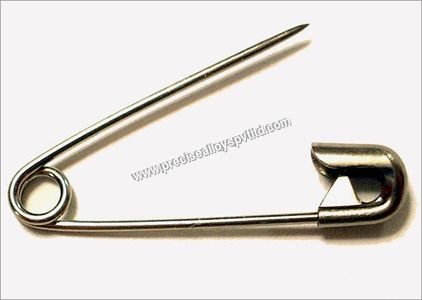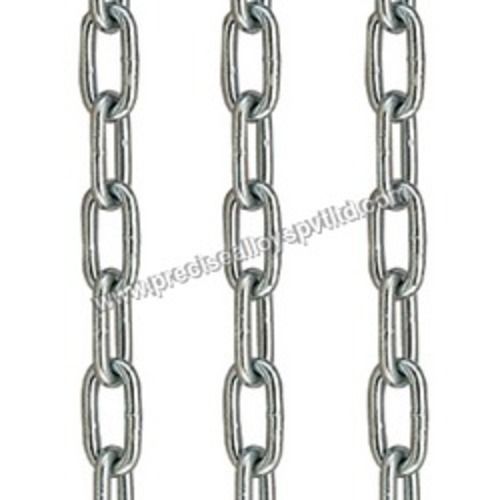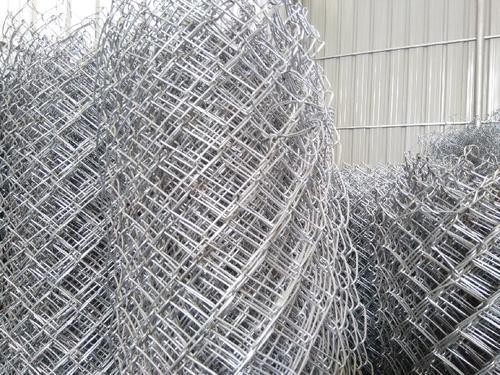

Wire For Safety Pins
35 INR/Kilograms
Product Details:
- Product Type Safety Pin
- Material Steel
- Function 1000
- Usage Construction
- Length 32 Millimeter (mm)
- Size Standard
- Color Silver
- Click to view more
X
Wire For Safety Pins Price and Quantity
- 200 Kilograms
- 35 INR/Kilograms
Wire For Safety Pins Specification
- Steel
- Construction
- Safety Pin
- 32 Millimeter (mm)
- Standard
- 1000
- Silver
Wire For Safety Pins Trade Information
- 1200 Kilograms Per Day
- 10 Days
- Yes
- Sample costs shipping and taxes has to be paid by the buyer
- As per buyer requirement
- All India
- ISO 9001:2008, ISO 14001:2007, OHSAS 18001:2001
Product Description
With the help of our distinguished professionals, our company has been able to mark its strong presence in the market as one of the well known manufacturers and suppliers of Wire for Safety Pins. The pins are highly demanded in the market for non-corrosive nature and durability. These wires add the attribute to the pin and make it more equipped with high tensile strength. The Safety Pin Wires are safe to use and available to the clients at reasonable prices.
Safety Pin Wires Specifications:
1. Length: 32 mm
2. Color: Silver
3. Material: Mild Steel Wire
4. Surface: Galvanized
FAQ:
Q: What is "Wire for Safety Pin"?
A: "Wire for Safety Pin" is a common term used to refer to a specific type of wire commonly used in the production of safety pins. Safety pins are simple, fastening devices used to temporarily hold things together. The wire used in these pins is typically made of metal and has specific properties that make it suitable for the pin's function.
Q: What materials are used to make "Wire for Safety Pin"?
A: The most common material used to make wire for safety pins is stainless steel. Stainless steel is preferred because it is rust-resistant and durable, ensuring the safety pin remains functional and reliable over time. In some cases, other metals like nickel or brass might also be used.
Q: What are the typical dimensions of "Wire for Safety Pin"?
A: The dimensions of the wire can vary depending on the size and type of safety pin being produced. Generally, the wire's diameter can range from 0.6mm to 1.2mm, with 0.8mm and 1.0mm being typical sizes. The length of the wire will depend on the size of the safety pin being manufactured.
Q: How is "Wire for Safety Pin" manufactured?
A: The manufacturing process of wire for safety pins involves several steps. It starts with the selection of suitable raw materials, mainly stainless steel. The wire is then drawn through a series of dies to reduce its diameter and increase its length. This process is known as wire drawing.
After wire drawing, the wire is annealed to relieve stress and improve its flexibility. Next, it may undergo surface treatments, such as polishing or coating, to achieve the desired appearance and properties. Finally, the wire is cut into appropriate lengths, ready to be used in the assembly of safety pins.
Q: Are there any safety standards or regulations for "Wire for Safety Pin"?
A: Yes, depending on the region and the intended use of safety pins, there may be safety standards and regulations that manufacturers must adhere to. These standards can specify requirements for the material used, dimensions, strength, and other properties of the wire to ensure the safety and reliability of the safety pins.
Q: What are some common uses for safety pins?
A: Safety pins have various practical uses, including:
1. Securing clothing items like hijabs, scarves, or kilts.
2. Temporary repairs of clothing tears or loose hems.
3. Attaching badges, name tags, or event passes to clothing.
4. Creating quick fixes for broken zippers or buttons.
5. Holding together fabric layers for sewing or crafting projects.
6. Organizing and fastening items like keys, notes, or tags.
Q: Can "Wire for Safety Pin" be used for other purposes?
A: While "Wire for Safety Pin" is specifically designed and manufactured for safety pins, its properties may make it suitable for some other applications. However, using it for other purposes might not be ideal as it may not meet the specific requirements of those applications. It's always best to use materials that are designed and tested for the intended use to ensure safety and effectiveness.
Tell us about your requirement

Price:
Quantity
Select Unit
- 50
- 100
- 200
- 250
- 500
- 1000+
Additional detail
Mobile number
Email
Other Products in 'Industrial Wires' category
 |
PRECISE ALLOYS PVT. LTD.
All Rights Reserved.(Terms of Use) Developed and Managed by Infocom Network Private Limited. |
 English
English Spanish
Spanish French
French German
German Italian
Italian Chinese (Simplified)
Chinese (Simplified) Japanese
Japanese Korean
Korean Arabic
Arabic Portuguese
Portuguese






